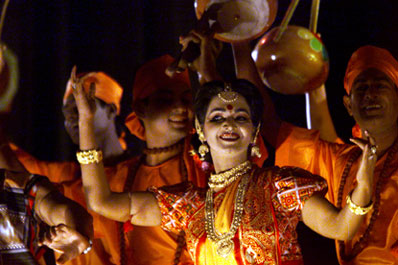
Bangladeshi hip hop is a vibrant musical genre and cultural movement that emerged in the early 1990s, heavily influenced by its American counterpart. It has evolved significantly, with artists increasingly using lyrical expression to address local themes such as cultural identity, socio-political issues, lifestyle, nature, and community concerns. This genre has made a substantial cultural impact across Bangladesh, becoming a powerful voice for its youth. The pioneers of Bengali rap, Ashraf Babu and Charu, introduced the first Bengali rap music album, Tri-Rotner Khepa, in 1993, laying the initial groundwork for the scene.
The early 2000s saw a surge of youth interest, leading to the formation of influential groups. In 2004, Stoic Bliss, an eight-member crew, pioneered "Banglish" – a fusion of Bangla and English rap – and quickly gained an underground following before social media. Their 2006 debut album, Light Years Ahead, signed with G-Series, sold over 250,000 copies within 10 months and featured the notable single "Abar Jigay," marking their emergence into the mainstream. Concurrently, individual rapper Shaon Ahmed, known as Fokir Lal Miah, made waves with his 2005 album Ekla Eksho, which sold 30,000 units in the UK within a month. His hit single "Lal Ekla Eksho" notably critiqued a 1971 war criminal, sparking both acclaim and controversy, and ultimately galvanizing interest in Bangla hip hop.
The period from 2006 to 2018 marked a significant "rising era" for Bangladeshi hip hop. Deshi MCs, formed in 2006, introduced Banglish Gangsta hip hop with their successful debut album Banned 1.0, whose song "Genjam" became a radio sensation. Hip hop's popularity soared, particularly among students, with tracks gaining millions of views on YouTube. Groups like Uptown Lokolz, founded in 2008, achieved immense fame with their album Kahini Scene Paat [Explicit] and its globally recognized single "Ai Mama Ai." The scene also saw its first international collaboration in 2009 by rapper Grand T, and Theology of Rap (T.O.R.) released successful albums like Hip Hop Jaati and its collaborative sequel Hip Hop Jaati 2.0.
A defining moment came in 2015 when Jalali Set, a crew known for its local sound and raw Dhaka slang, gained viral fame with "Sura Target" on YouTube. Their 2016 debut album, Level 13, became one of the most successful for any Bangladeshi hip-hop group, featuring the iconic rap song "Bonobasher Shadon." The influence of these pioneers extended beyond music, fostering a diverse community of rappers, B-boys, graffiti artists, beatboxers, and designers, as exemplified by collectives like Comilla Hip Hop Hood, active since 2007. The enduring legacy of groups like Stoic Bliss and Deshi MCs was reaffirmed with their mainstream comebacks in 2017, solidifying hip hop's status as a noticeable and impactful genre in Bangla music.
Hello from Cyprus ♥️